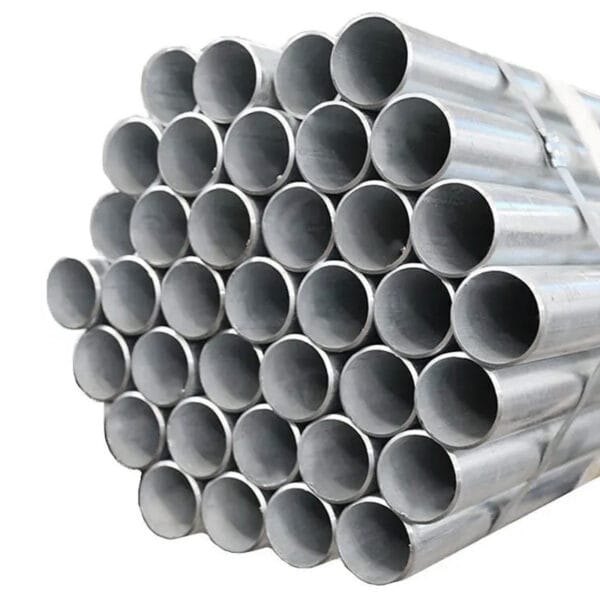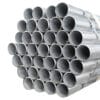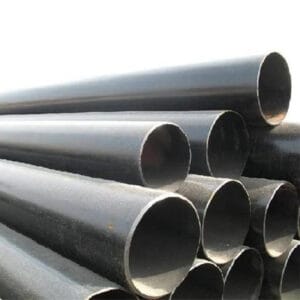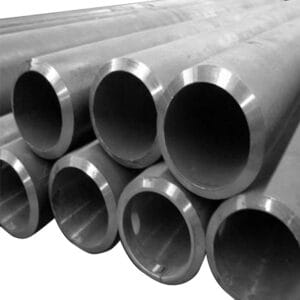Description
Premium Gi Pipes for Modern Plumbing and Industrial Systems
Galvanized Iron (GI) pipes are widely used in plumbing and irrigation systems. They are coated to prevent rust and corrosion, making them a durable choice for both residential and industrial applications. These products are specifically designed and manufactured to meet the highest standards in the industry. They undergo rigorous quality control processes to ensure that they are durable, reliable, and suitable for a wide range of applications. Whether you’re working on a small residential project or a large industrial development, these materials provide the strength and support needed to ensure the success of your construction. Their versatility and adaptability make them an essential component in modern engineering and architecture.
Galvanized Iron (GI) pipes represent a cornerstone in contemporary plumbing and irrigation infrastructure. These specially treated pipes undergo a sophisticated galvanization process that creates a protective zinc coating, effectively preventing rust and corrosion. Their exceptional durability and reliability make them the preferred choice across residential and industrial applications. Through rigorous quality control processes and adherence to strict manufacturing standards, GI pipes consistently deliver outstanding performance and longevity. From modest residential installations to expansive industrial developments, these pipes provide the essential strength and support necessary for successful construction projects.
Read More
Manufacturing Process and Quality Standards
The production of GI pipes involves a meticulous galvanization process (learn about galvanization standards) where steel pipes are dipped in molten zinc at temperatures exceeding 840°F (449°C). This creates a metallurgically bonded coating that provides superior protection against corrosion and environmental degradation. Each pipe undergoes comprehensive testing and inspection to ensure compliance with international quality standards.
Material Properties and Characteristics
GI pipes feature a unique combination of strength and corrosion resistance. The zinc coating not only provides a barrier against oxidation but also offers sacrificial protection, meaning the zinc corrodes preferentially to protect the underlying steel. This dual protection mechanism significantly extends the service life of the pipes.
Applications and Industry Usage
In residential settings, GI pipes excel in various applications:
- Domestic water supply systems
- Irrigation networks
- Rainwater harvesting systems
- External plumbing installations
- Structural supports for home improvements
Industrial Implementation
The industrial sector leverages GI pipes for:
- Process water distribution
- Compressed air systems
- Fire protection networks
- Chemical transport systems
- Cooling water circulation
- Waste water management
Technical Specifications and Dimensions
GI pipes are manufactured in various sizes to accommodate different project requirements:
Standard Size Categories
- Structural Pipes: ½ inch to 16 inches
- Standard (Schedule 40): ½ inch to 16 inches
- Light Series: ½ inch to 16 inches
Each category serves specific purposes based on pressure requirements and structural needs.
Installation and Maintenance Guidelines
Proper installation of GI pipes ensures optimal performance and longevity. Industry professionals recommend specific installation procedures (view installation guide) that address:
Installation Protocols
- Joint preparation techniques
- Threading and fitting methods
- Support system requirements
- Pressure testing procedures
- Alignment specifications
Long-term Maintenance
Regular maintenance enhances the performance and extends the lifespan of GI pipe systems through:
- Scheduled inspections
- Water quality monitoring
- Joint integrity checks
- Coating condition assessment
- Preventive maintenance planning
Environmental Impact and Sustainability
Modern GI pipe manufacturing emphasizes environmental responsibility while maintaining product integrity. Sustainable practices include:
- Eco-friendly coating processes
- Recyclable material utilization
- Energy-efficient production methods
- Waste reduction strategies
- Water conservation techniques
Safety Standards and Compliance
GI pipe installations must meet stringent safety standards (reference safety standards) across different applications. This includes:
- Pressure ratings compliance
- Material safety certifications
- Installation code adherence
- Quality assurance documentation
- Regular safety inspections
Innovation and Future Developments
The GI pipe industry continues to evolve with technological advancements focused on:
- Enhanced coating technologies
- Smart monitoring capabilities
- Improved connection systems
- Advanced material formulations
- Increased durability features
Economic Benefits and Cost Analysis
Investing in GI pipes offers significant long-term economic advantages:
- Reduced maintenance costs
- Extended service life
- Lower replacement frequency
- Improved system reliability
- Enhanced operational efficiency
This comprehensive guide to GI pipes demonstrates their vital role in modern plumbing and industrial applications. Understanding their specifications, applications, and maintenance requirements helps ensure optimal material selection and long-term performance success.
Specifications
Standard Properties:
- Material: Mild Steel with Zinc Coating
- Standard: IS 1239, BS 1387
Dimensions:
- Nominal Size: 15mm to 150mm
- Length: 6m standard (customizable)
Structural Pipes – ½” to 16”
Standard (Schedule 40) – ½” to 16”
Light Series – ½” to 16”
Please call for inquiries.






